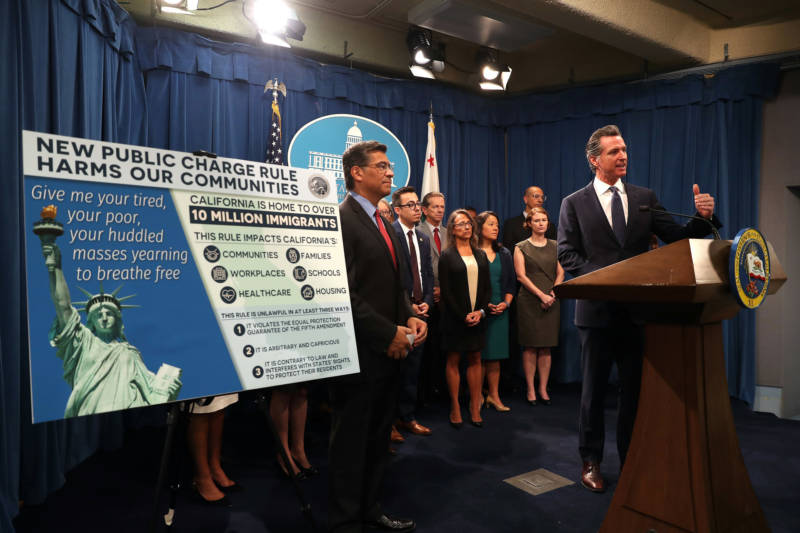A federal judge in California has issued a temporary injunction to block a Trump administration rule that would deny green cards to immigrants using public benefits like housing vouchers, food stamps and government-subsidized medical care.
Rulings Block 'Public Charge' Rule in California and Nationwide

U.S. District Judge Phyllis Hamilton agreed with a group of plaintiffs comprised of five states, including California, two counties and immigrant service providers, who argued that states and counties could lose millions of dollars in federal funds if immigrants drop out of Medicaid (known in California as Medi-Cal) for fear of jeopardizing their chance at a green card.
The plaintiffs said they were concerned about the rule’s chilling effect on public health — immigrants would be too fearful to get necessary immunizations, which would increase the likelihood of communicable disease outbreaks.
“The public interest cuts sharply in favor of an injunction,” Hamilton said. “The public certainly has an interest in decreasing the risk of preventable contagion.”
Since the Trump administration announced the so-called public charge rule in August, there’s been reports that fear led some immigrants to drop out of federal assistance programs like food stamps.
While Hamilton did not agree that the injunction should be issued nationwide, a federal judge in New York had issued a nationwide preliminary injunction just one hour before Hamilton’s ruling — effectively blocking the rule across the U.S.
Judge George B. Daniels of the U.S. District Court in Manhattan said in his decision that not doing so would create unnecessary burdens for citizens across the U.S.
“It would be illogical, for example, if a New York resident was eligible for adjustment of status but a resident of a sister state with the same exact background was not eligible, only because the second resident had the misfortune of living somewhere not covered by a limited injunction,” Daniels said.
Daniels also said that nearly two dozen jurisdictions have brought suit against this rule, and would “wreak havoc on the immigration system if limited injunctions were issued.”
Ultimately, legal experts and immigrant advocates say the rulings mean good news for immigrants who worried about the rule.
“What it means here, locally, is that there’s protection coming out of the court order from New York and from our case. Our case protects everyone in California, so there’s kind of a double-layer of protection at this time,” said James Williams, counsel for Santa Clara County, which filed one of the lawsuits against the rule.
The Trump administration has argued that the public charge rule aligned with federal policy, which requires immigrants to be self-sufficient in order to obtain citizenship. The rule was scheduled to go into effect on Oct. 15.
Earlier this year, Acting Director of U.S. Citizenship and Immigration Services Ken Cuccinelli drew ire after saying that the poem on the Statue of Liberty, actually says “give me your tired and your poor who can stand on their own two feet and who will not become a public charge.”
USCIS would not comment on whether or not it will appeal these rulings. But for now, officials in California say immigrants can safely use public services.
“This decision is a victory for the rule of law and the American dream,” said San Francisco City Attorney Dennis Herrera. “The fact of the matter is that the administration has been waging a campaign to deprive hard-working families of food, housing and health care. And the message today is clear: don’t succumb to fear.”
